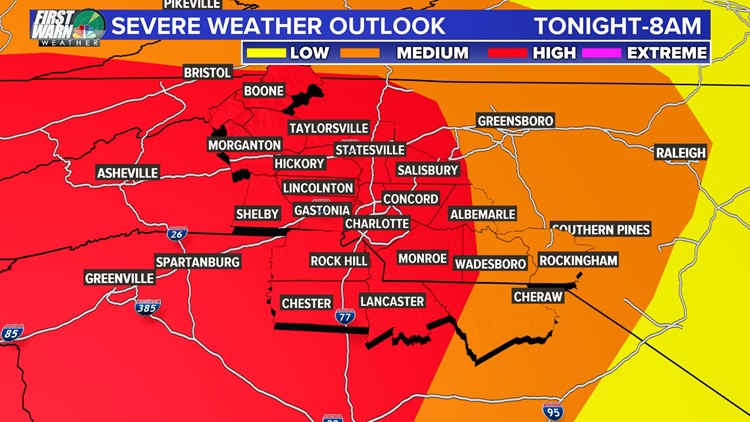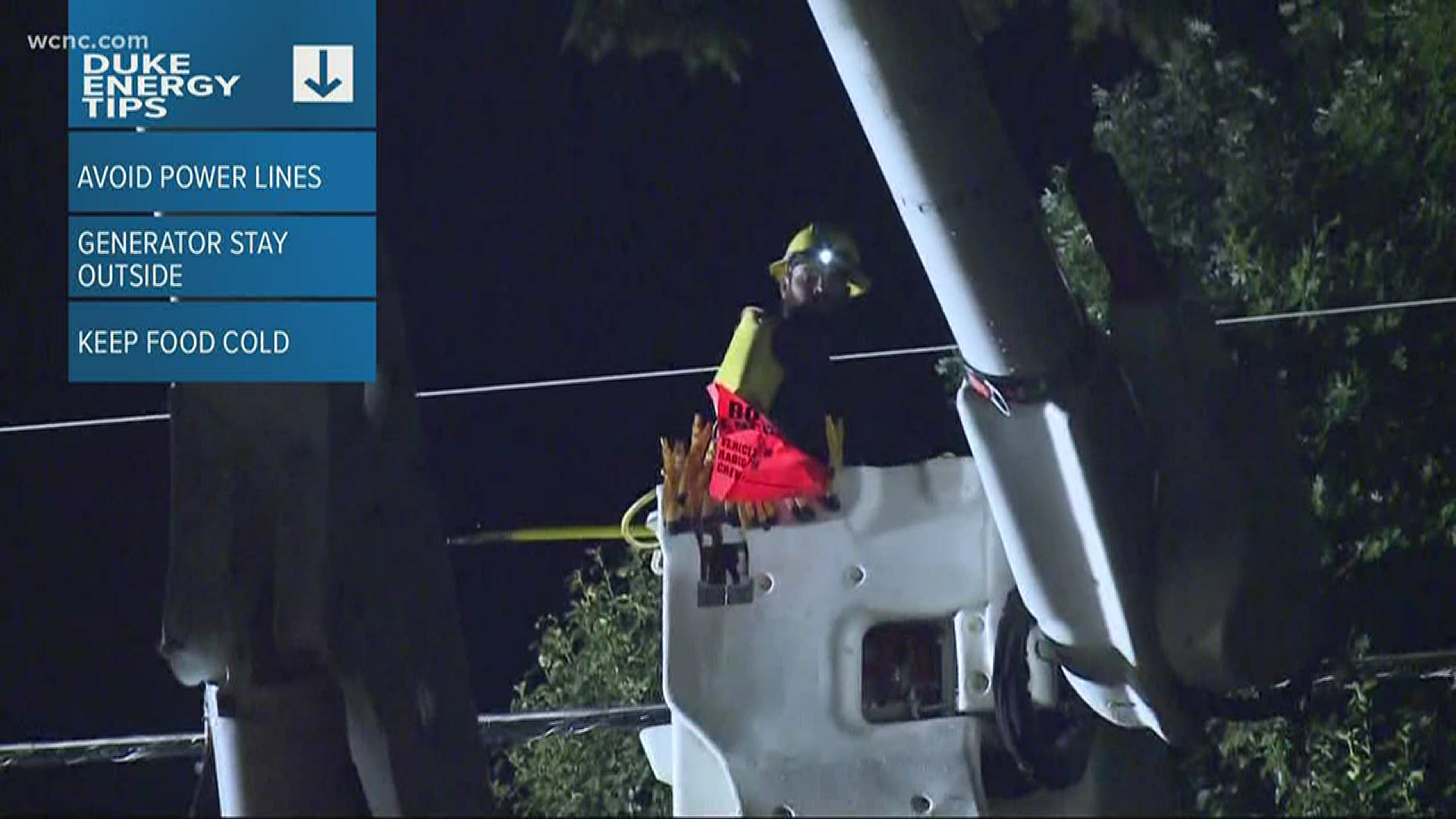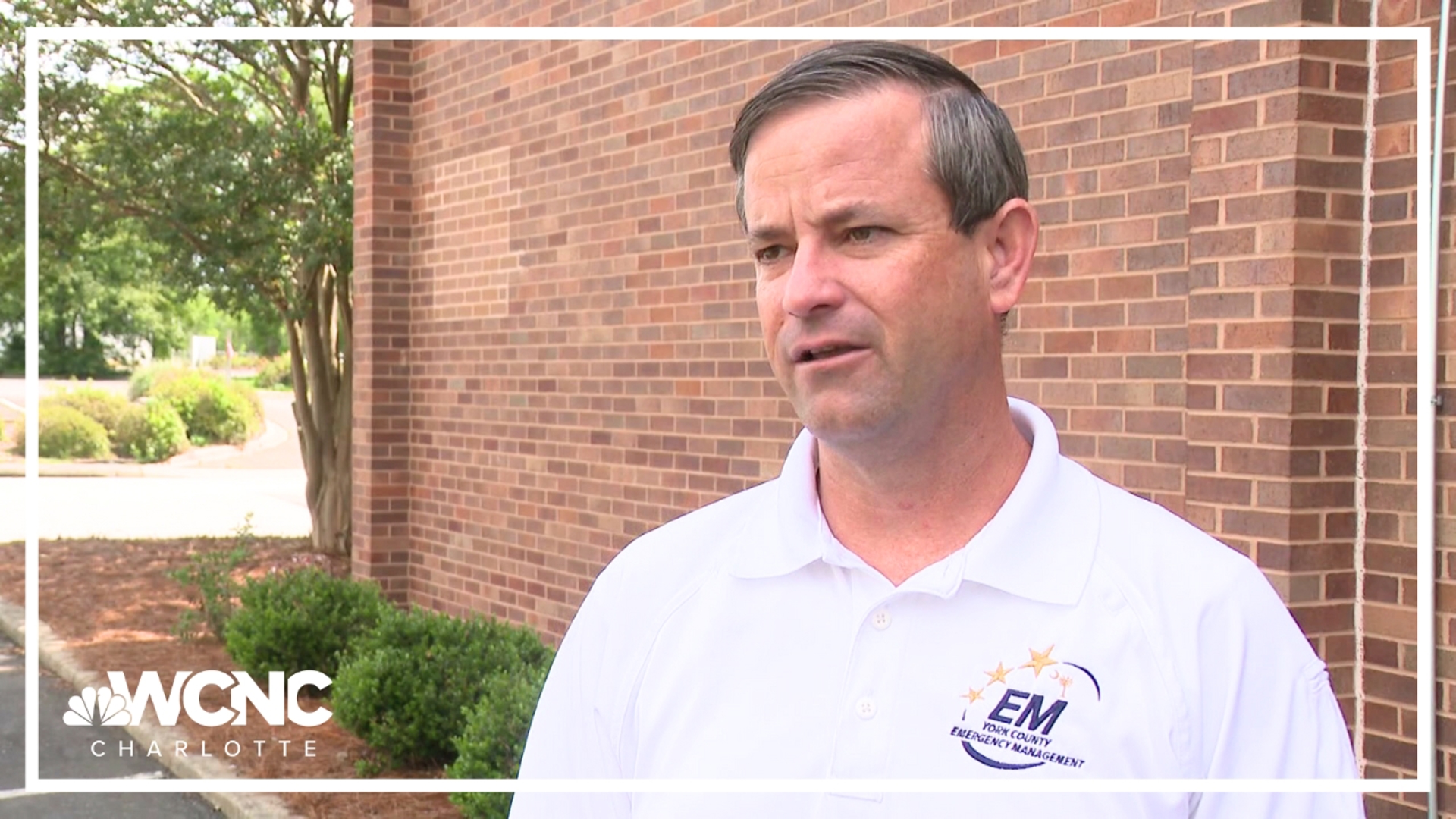CHARLOTTE, N.C. — Governor Roy Cooper is urging North Carolinians to prepare for severe weather and the possibility of power outages overnight and into Monday afternoon.
The National Weather Service said strong thunderstorms along the front may be capable of producing damaging wind gusts, tornadoes, and large hail. A few strong, long-lasting tornadoes are also possible.
NWS said very heavy rainfall could lead to flash flooding, especially across the mountains overnight.
“North Carolinians are already following stay-at-home orders for the coronavirus, and now it’s also important to prepare for strong storms and possible power outages,” said Governor Roy Cooper.
Governor Cooper encouraged others to follow local weather conditions on Sunday and Monday, and urged people to have at least one way to receive severe weather warnings.
The exact timing of the severe weather could change as the forecast continues to develop. Timing changes could trend the chances of severe weather up or down.
Regardless, now is the time to prepare. Charge your phone. Find your flashlights. And make sure you have multiple ways to receive severe weather bulletins, including options like an NOAA Weather Radio or the WCNC app that will make sound and alert you while you're sleeping.
Pro tip: Consider NOT putting your phone on Do Not Disturb when you go to sleep Sunday. This way you will hear calls or apps alerting you to any potential severe weather.
In the event of a power outage:
- Report your outage immediately to your local electric company.
- Stay away from downed power lines, flooded areas and debris. Treat all fallen wires and anything touching them as though they are energized. Immediately report downed lines to your local electric company.
- Keep freezer and refrigerator doors closed. Food will stay frozen for 36 to 48 hours in a fully loaded freezer if you keep the door closed. A half-full freezer will generally keep food frozen for 24 hours.
- Pack refrigerated items, such as milk, other dairy products, meat, fish, eggs, gravy and spoilable leftovers into a cooler surrounded by ice. Styrofoam coolers will work for this purpose.
- Follow safe operating procedures for generators. Never operate one inside your home or in an enclosed space, such as a garage.
- If using portable stoves, kerosene heaters, or lanterns, make sure the area is sufficiently ventilated.
"This time of year, you have dynamic storms in April," WCNC Chief Meteorologist Brad Panovich explained. "You have the crossover of the strong winds associated with the wintertime jet streams - and the springtime heat and humidity. When those two meet up, we get massive severe weather outbreaks."
MORE ON WCNC CHARLOTTE




